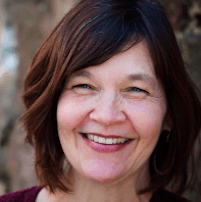 Photo Credit: Patrick Emerson
Photo Credit: Patrick Emerson What is Focusing-Oriented Psychotherapy?
By Clare Brown, LPC, Licensed Professional Counselor in Chapel Hill, NC
Focusing-oriented psychotherapy evolved from a holistic and body-oriented practice called “focusing.” As a therapist, I sometimes describe focusing as psychological mindfulness because it is firstly an awareness practice. Unlike in a classic mindfulness practice – in which we notice experience and let it go – when we are in therapy and aware of difficult feelings and experiences, we often need to move toward our pain to better understand and resolve it. The challenge is facilitating this deepening engagement – we have learned all kinds of ways to avoid, shut off, judge or jettison our painful experiences. And these coping mechanisms often result in depression, anxiety or stress. The practice called focusing gives us a mindful way to respond to our struggle (depression, anxiety, stuckness – whatever it is) so that the natural healing process of the body can do its work.
Focusing is a practice that is taught to anyone. It is a practice that is done in partnership with someone who has learned it in a workshop environment. In psychotherapy, the practice is used by many different kinds of therapists, all whom have initially learned the practice for their own well being, and some who have undergone further training to become Focusing-oriented Psychotherapists. A therapist utilizing focusing can gently facilitate a greater ability for you to be present to yourself and your experience. This deepens your capacity to clearly sense and engage with your inner world, which leads to less anxiety, depression and greater overall confidence in your capacity to manage life.
One popular teacher of focusing, Ann Weiser Cornell, describes how our capacity to be with ourselves in this way is healing:
“We release trauma by becoming the environment that the traumatized one always needed. It’s not hard to do, because compassionate attention is the natural state of Self. It’s only parts of us that get impatient and start to say things are not changing quickly enough. And those too we can turn toward and say a gentle hello to. A space of radical acceptance!” – Ann Weiser Cornell, Author and Educator
How do you Focus in psychotherapy?
Focusing is a way of relating to whatever is coming up from our whole being – not just our minds. In therapy it means that I might ask you to slow down and notice what happens in your body when you talk about something. And I might encourage you to come to what you are experiencing with open, non-judgmental curiosity.
As we do this, we often notice more. It may be the sense that you don’t like what you are doing, or noticing or experiencing. We can be aware of how this process happens – “you” were having a feeling, and then “you” don’t want that. Who is the real you? Focusing helps us “get bigger than what’s bugging us,” as teacher Ann Weiser Cornell says. As a therapist, I help you tease this experience out, revealing that being human is not a singular experience; there is always more than one internal experience happening, any aspect might feel like you, but no experience is the whole of you. We learn to turn our awareness to these experiences, which creates safety, perspective, understanding, and relief.
Focusing is a process that starts with slowing down and creating a space for whatever is going on. So when we hear a voice in our heads telling us that we were stupid for saying something, we don’t automatically believe that voice – by focusing in therapy, we learn to slow down, become mindful and engage this inner situation differently. Firstly, you might notice that there are two internal parts, one, for example, that is judging you “stupid” and another who believes it. To sense this can put us in a more powerful position and we start to better understand ourselves – for instance, no wonder you feel anxious to speak in front of others if you’ve got a part that tells you you’re stupid for something you’ve said, and another part that believes it and feels increasingly anxious.
In therapy, focusing allows us to work with each of these parts. For example, as you notice more about whatever comes up, you might come to a clutching pain in your chest. Or a sense that all this is somehow like riding a bike for the first time. You may sense something not wanting attention at all. These senses are essential to our understanding of an experience, its impact on us, and its resolution. Eugene Gendlin, the psychologist and philosopher who originally developed focusing, named these kinds of embodied understandings “felt senses”.
Many different therapeutic orientations now use the term “felt sense,” but Gendlin coined the term, and his definition is more nuanced than many usages. A felt sense can be a vague physical feeling, or an image, or something that you can notice in your body that gives you unique and relevant information about what’s happening for you in the moment. Gendlin, and subsequent researchers after him, discovered that success in therapy was correlated to this ability to listen inwardly – by way of slowing down, checking in with yourself on what you are saying, grappling on the edge of something you are sensing, naming it and noticing how your description of it it resonates. This sensing-in sets in motion a natural process that Gendlin described as “the body’s own life-centered and inherently positive direction and force.” Many now call this resilience.
How we re-establish and re-engage our natural resilience is the work of therapy, and focusing is a creative and facilitative practice to that end.
 About this contributor: Clare Brown is a Licensed Professional Counselor (LPC) in Chapel Hill, NC, specializing in helping adults learn to connect with themselves deeply, to heal & create mindful, open-hearted lives. Resolving anxiety, depression, &/or trauma is often part of the work. “My goal,” she says, “is not for us to manage or just learn to cope, but for people to thrive: to live more fully, coming into and relishing our unique strengths and aliveness.” Her first career was as a writer; she has been a psychotherapist since 2007. Her own focusing practice is foundational in her life and work. In her psychotherapy practice, focusing resonates with and deepens her practice of AEDP (Accelerated Experiential Dynamic Psychotherapy) and EMDR. You can learn more about her practice at clarebrownpsychotherapy.com.
About this contributor: Clare Brown is a Licensed Professional Counselor (LPC) in Chapel Hill, NC, specializing in helping adults learn to connect with themselves deeply, to heal & create mindful, open-hearted lives. Resolving anxiety, depression, &/or trauma is often part of the work. “My goal,” she says, “is not for us to manage or just learn to cope, but for people to thrive: to live more fully, coming into and relishing our unique strengths and aliveness.” Her first career was as a writer; she has been a psychotherapist since 2007. Her own focusing practice is foundational in her life and work. In her psychotherapy practice, focusing resonates with and deepens her practice of AEDP (Accelerated Experiential Dynamic Psychotherapy) and EMDR. You can learn more about her practice at clarebrownpsychotherapy.com.
Clare Brown’s training in Inner Relationship Focusing was developed by a student of Gendlin’s, Ann Weiser Cornell. See Weiser Cornell’s website focusingresources.com for a free mini e-course or to watch short videos that introduce simple focusing practices. Research and further information, including a directory of Focusing-Oriented Psychotherapists and trainers, is also available at focusing.org (The International Focusing Institute).
Research:
To learn more about research studies on Focusing, please visit this page: www.focusing.org/research.html

Leave a reply
You must be logged in to post a comment.